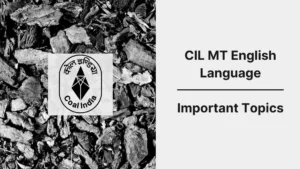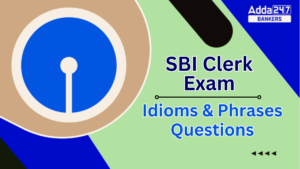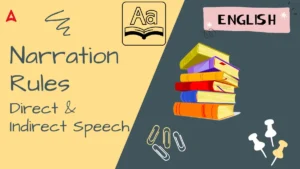Directions (Q.1-5): Rearrange the following six sentences (A), (B), (C), (D), (E) and (F) in the proper sequence to form a meaningful paragraph; then answer the questions given below them.
(A) In fact he believed that customers are the origin, the source of the money we have.
(B) The customer thus has the power to fire everybody in the company from the chairman on down.
(C) Management can ensure this doesn’t happen by motivating employees to cultivate meaningful relationships with customers.
(D) Sam Walton built his WalMart business empire knowing there was only one boss – the customer.
(E) So it is not the company which pays us but the customer.
(F) He can achieve this by simple spending his money elsewhere.
Q1. Which of the following will be the FIRST sentence after rearrangement?
(a) B
(b) C
(c) D
(d) E
(e) F
Q2. Which of the following will be the SECOND sentence after rearrangement?
(a) A
(b) B
(c) C
(d) D
(e) E
Q3. Which of the following will be the THIRD sentence after rearrangement?
(a) B
(b) C
(c) D
(d) E
(e) F
Q4. Which of the following will be the FIFTH sentence after rearrangement?
(a) A
(b) B
(c) C
(d) D
(e) F
Q5. Which of the following will be the SIXTH (LAST) sentence after rearrangement?
(a) B
(b) C
(c) D
(d) E
(e) F
Directions (6-10): Rearrange the following five sentences (A), (B), (C), (D) and (E) in the proper sequence to form a meaningful paragraph and then answer the questions given below.
(A) Absolute advantage, in economics, is a concept of trade in which one country can produce a quantity of a product in a more efficient manner a quantity of a product in a more efficient manner (that is, with fewer resources of labour, land and/or capital) than another country.
(B) However, this statistics does not carry the implication that Japan should specialize in steel and the UK should not because Japan might be even better relative to the UK at other things.
(C) For example, in 1981, Japan produced a ton of steel with only 9.4 man-hours at a cost of only $502, compared with 16.5 man hours and $622 in the U.K.
(D) Not only that, but neither absolute nor comparative advantage are necessarily static for all time: Once, UK steel producers were more efficient that the Japanese.
(E) The real guide to specialization and to maximizing the gains from trade is comparative advantage.
Q6. Which of the following should be the First sentence of the given paragraph?
(a)E
(b)D
(c)C
(d)B
(e)A
Q7. Which of the following should be the Third sentence of the given paragraph?
(a)A
(b)B
(c)C
(d)D
(e)E
Q8. Which of the following should be the Fifth sentence of the given paragraph?
(a)A
(b)C
(c)B
(d)D
(e)E
Q9. Which of the following should be the Fourth sentence of the given paragraph?
(a)A
(b)C
(c)B
(d)E
(e)D
Q10. Which of the following should be the Second sentence of the given paragraph?
(a)B
(b)D
(c)A
(d)C
(e)E
Directions (Q.11-15): Rearrange the following six sentences (A), (B), (C), (D), (E) and (F) in the proper sequence to form a meaningful paragraph; then answer the questions.
(A) In the early period a good memory was a prerequisite for success and poets like Homer memorised their work before it was ever written down.
(B) If we have to remember everything will it not increase the feeling of stress?
(C) Today memory is widely regarded as a useful aid to survival.
(D) However it is not what we grasp but what we fail to – forgetting a file, key points at an interview – which causes stress.
(E) Some people however are of the view that having an exceptional memory in a world of high pressure working is a disadvantage.
(F) To our ancestors though, in the absence of the printing press it was much more – it was the slate on which history was recorded.
Q11. Which of the following will be the THIRD sentence after rearrangement?
(a) A
(b) B
(c) C
(d) D
(e) E
Q12. Which of the following will be the FIRST sentence after rearrangement?
(a) A
(b) B
(c) C
(d) D
(e) E
Q13. Which of the following will be the SECOND sentence after rearrangement?
(a) B
(b) C
(c) D
(d) E
(e) F
Q14. Which of the following will be the SIXTH (LAST) sentence after rearrangement?
(a) B
(b) C
(c) D
(d) E
(e) F
Q15. Which of the following will be the FIFTH sentence after rearrangement?
(a) A
(b) B
(c) C
(d) D
(e) E



 Important Topics for CIL MT English Lang...
Important Topics for CIL MT English Lang...
 Idioms and Phrases Questions for SBI Cle...
Idioms and Phrases Questions for SBI Cle...
 Narration Rules for Direct & Indirec...
Narration Rules for Direct & Indirec...





